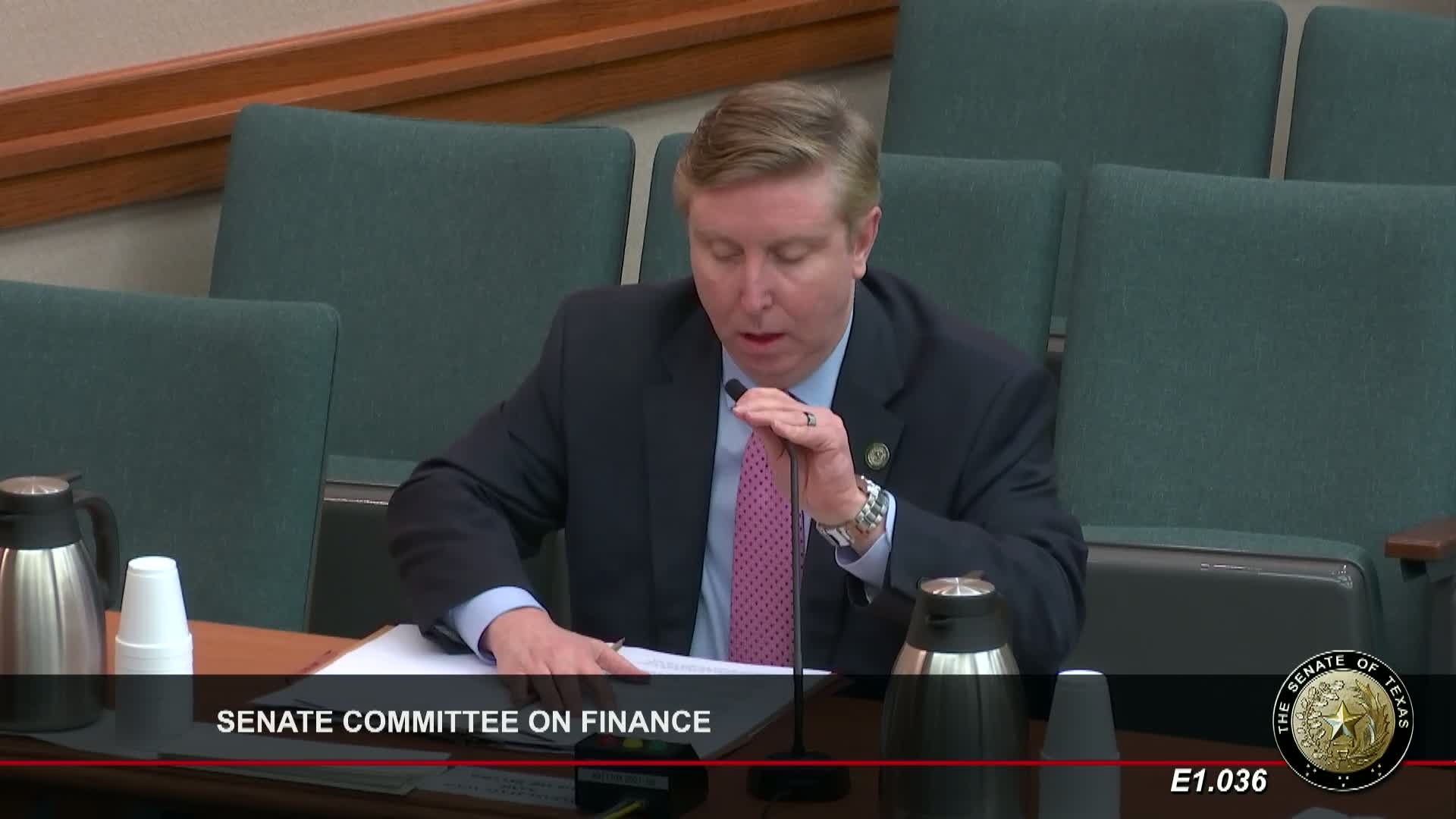Article not found
This article is no longer available. But don't worry—we've gathered other articles that discuss the same topic.
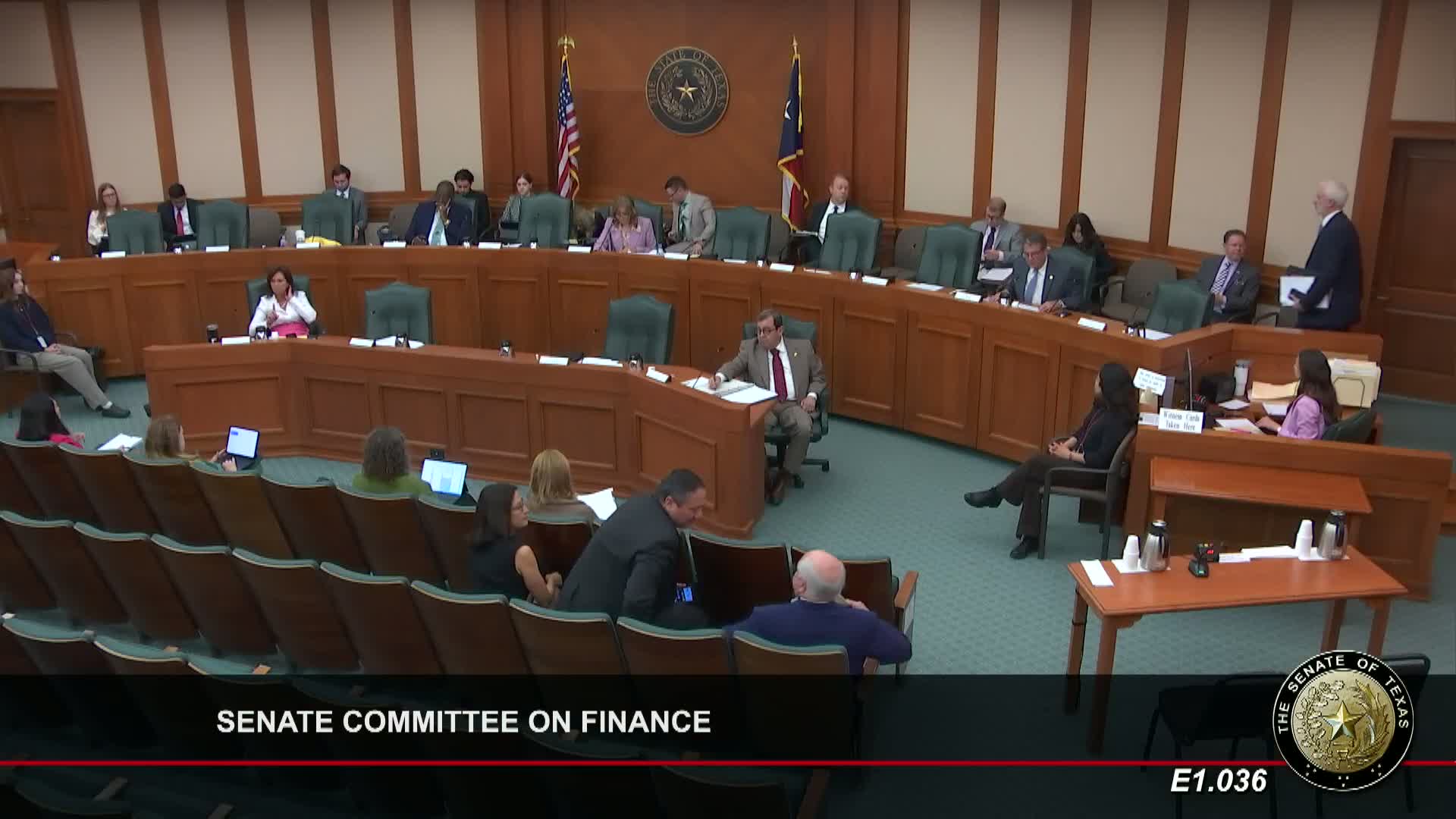
Committee hears bill expanding fracking water-use exemption to non-fresh sources; fiscal trade-offs discussed
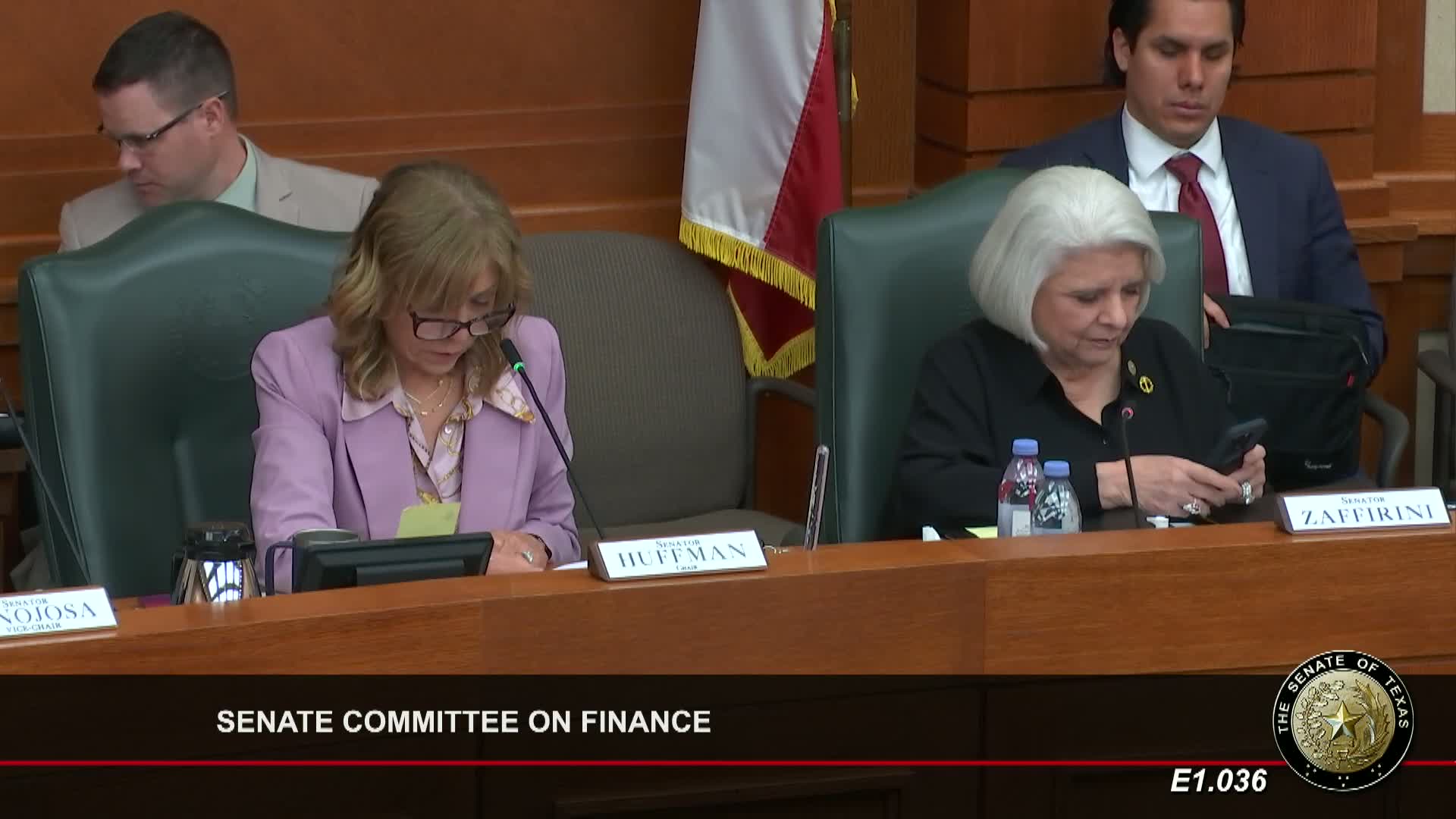
Committee advances bill to add industrial uniform and linen rental to retail trade definition
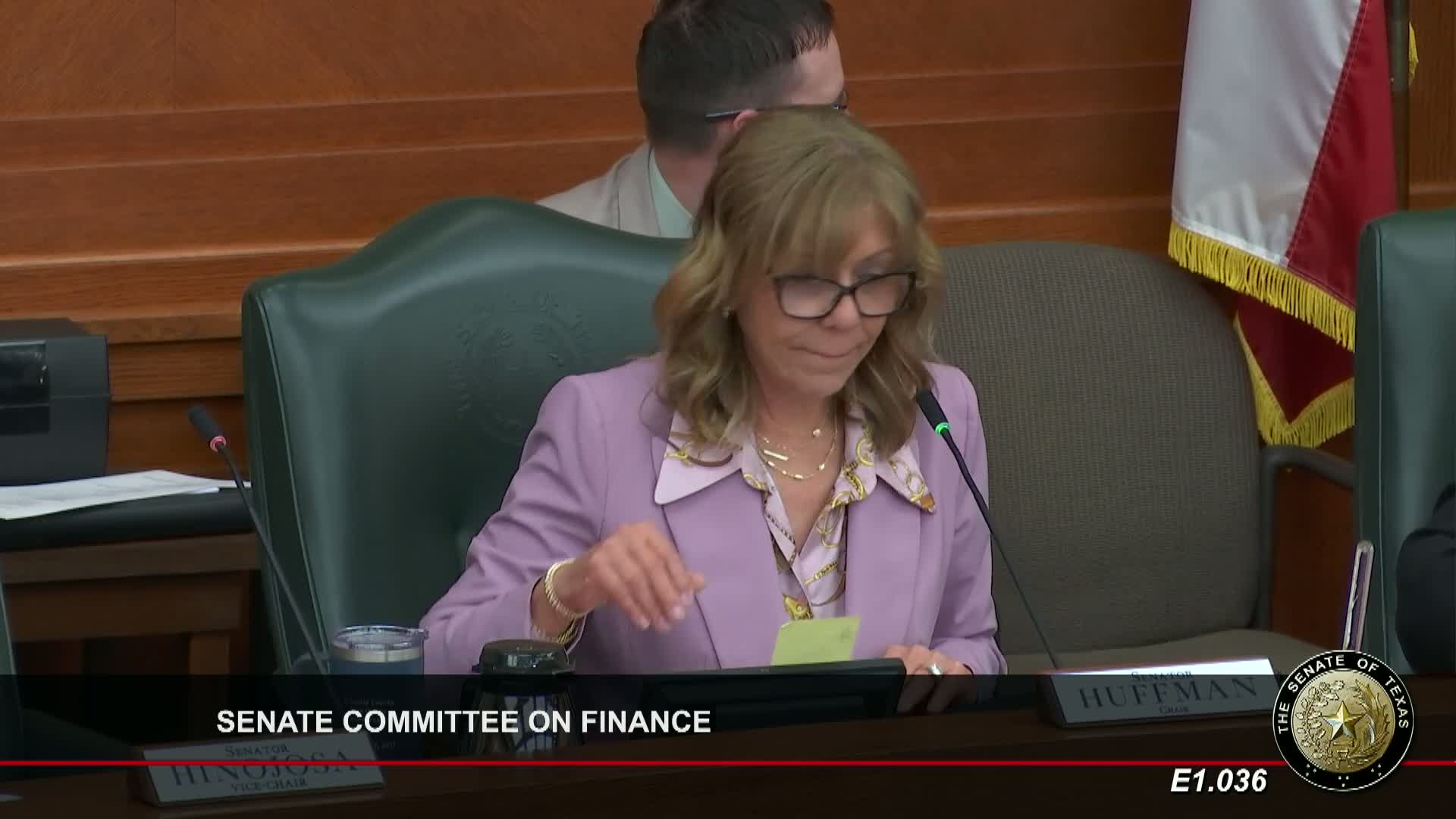
Senate panel backs bill to codify Judicial Centers of Excellence program
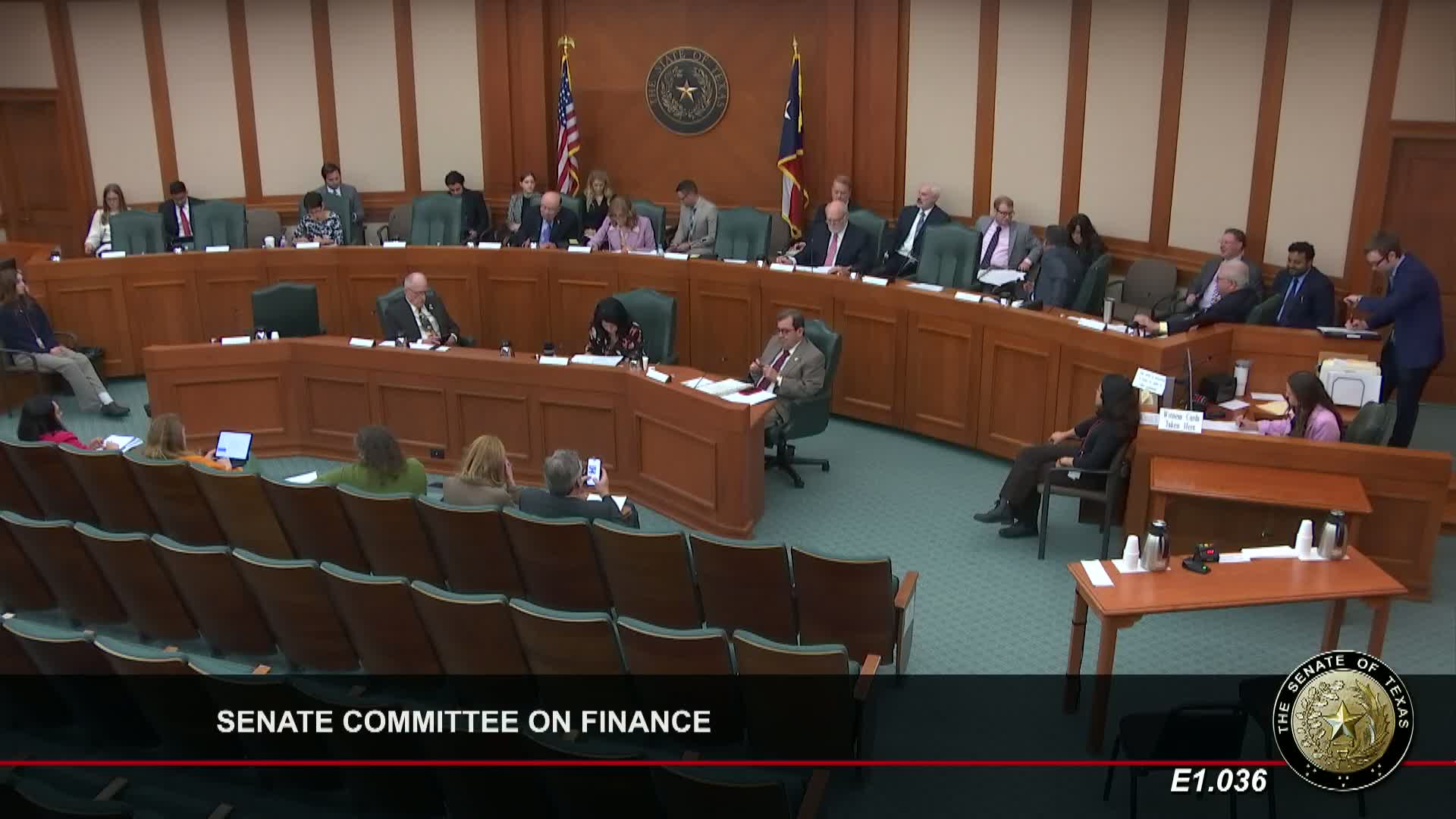
Votes at a glance: Senate Committee on Finance actions
